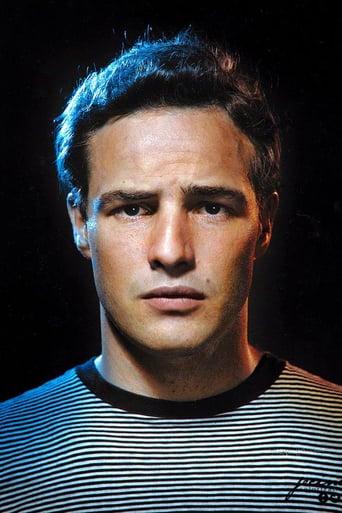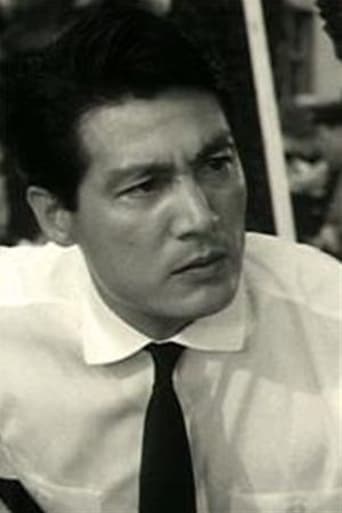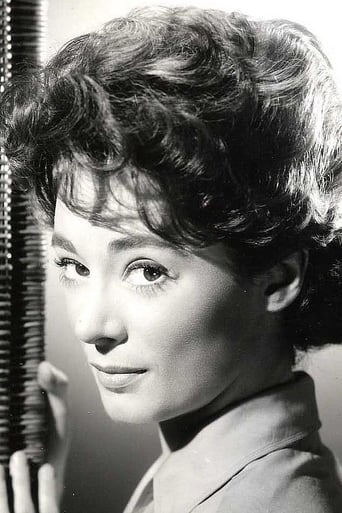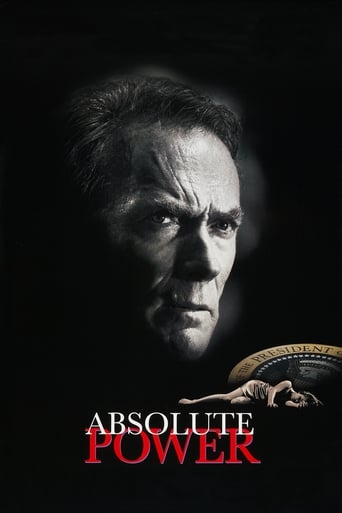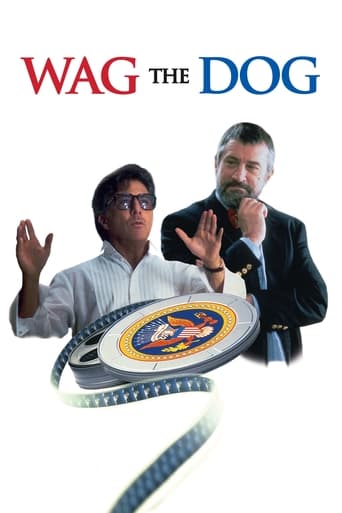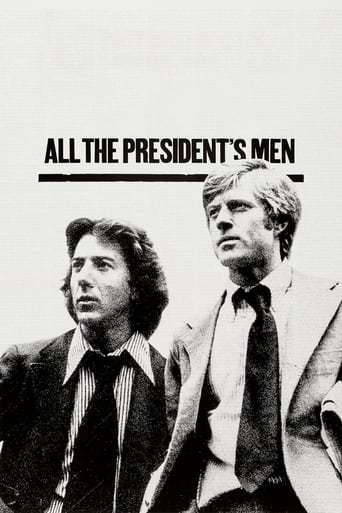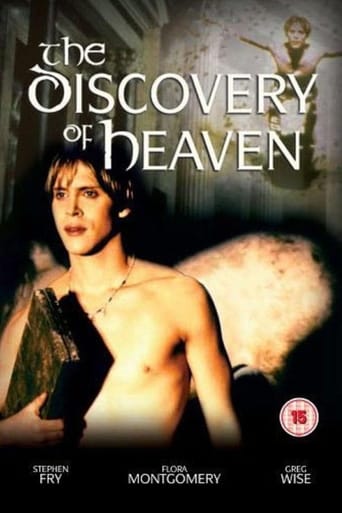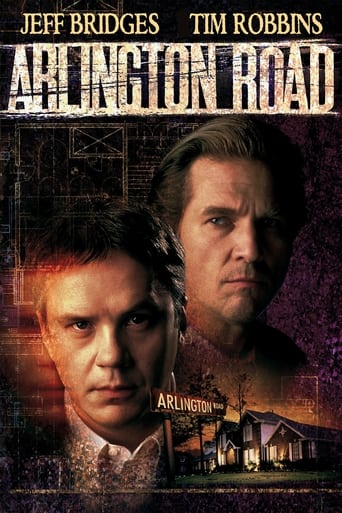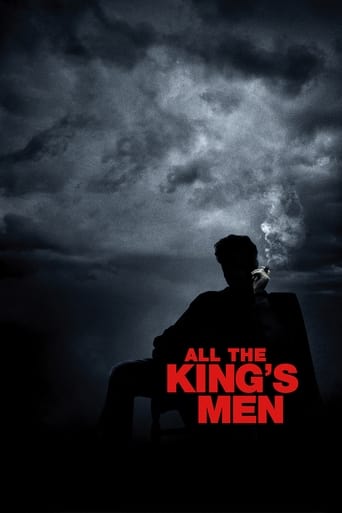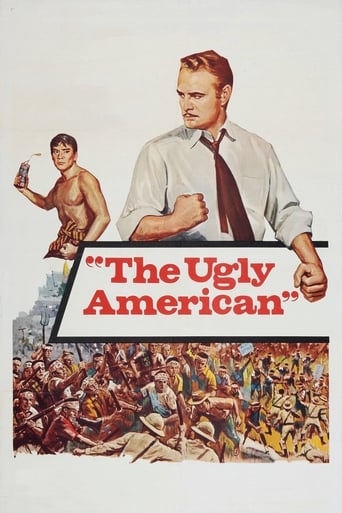
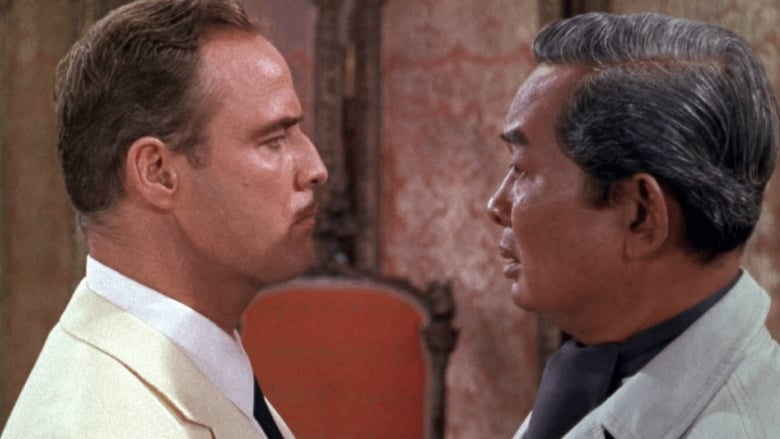
The Ugly American (1963)
An intelligent, articulate scholar, Harrison MacWhite, survives a hostile Senate confirmation hearing at the hands of conservatives to become ambassador to Sarkan, a southeast Asian country where civil war threatens a tense peace. Despite his knowledge, once he's there, MacWhite sees only a dichotomy between the U.S. and Communism. He can't accept that anti-American sentiment might be a longing for self-determination and nationalism. So, he breaks from his friend Deong, a local opposition leader, ignores a foreman's advice about slowing the building of a road, and tries to muscle ahead. What price must the country and his friends pay for him to get some sense?
Watch Trailer
Cast
Similar titles

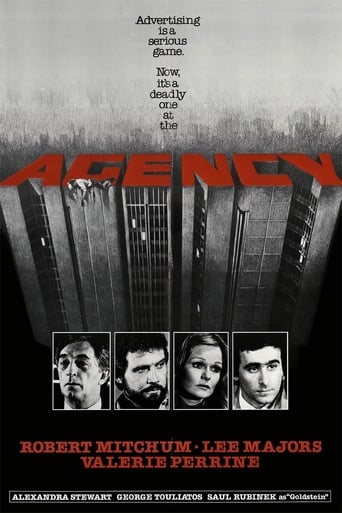
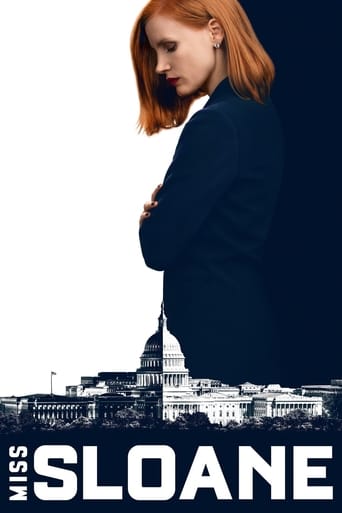
Reviews
Very Cool!!!
the audience applauded
Lack of good storyline.
This movie feels like it was made purely to piss off people who want good shows
I have been cheated. The film's title, the name of (Marlon Brando) – as the star who refused the Oscar for the way the red Indians were portrayed in Hollywood – , and as a film about how America was treating the Asian nations during the cold war, all of that fooled me perfectly, giving me false hope to watch an objective work. Because after all, it's just a piece of propaganda from the 1960s.It tried to be a story about the friendship of 2 good men with 2 different points of view in an ocean of big problems. It tried, a bit, to display that the American hero isn't all flawless. But it ended up as a Hollywood film about the goodness of America and the evilness, or the stupidity, of the rest! Let's simply review what it did say : the American is a peace-loving man, America got no military greed whatsoever in Asia (HA HAA HAAA !), the eastern bloc is bad, just bad, and doesn't want anything but to kill and seize, the Asian developing country's public leader is so deluded, knowing nothing about America's kindhearted face, thinking "wrongly" that they cared about his country just as a new playground for the cold war ??? (Actually he isn't an idiot, but maybe the writer of this film is !).The first half is so powerful with 3 great scenes; the congress's open session for interrogating (Mac) the nominee ambassador, the first meeting of this new ambassador with his staff, and surely the master scene of that bullfight of a squabble between him and his good old friend/the public leader (Deong) over America's real aims.After that, things grew less solid. I totally couldn't accept the agreement between the eastern bloc and (Deong). The approval of the last was fast and forced. I don't believe for a second that this man, who rejects truthfully and publicly that his country turns into a grass for the east or the west, can be incredibly dumb to hand his very country over a full gang of communist nations so easily !?? Let alone that the absence of "Munsang", the local communist leader, out of the drama weakened (Deong)'s character and darkened his change.Then the adolescent reaction from the American ambassador which pushed things to explosion; I felt it extremely unwise for his character to think like this. And it was strange that the Asian president approved it as well. Anyway, not the monologue of "what happened to us" that the lead tells his friend by the end could set things right. With fabricated, nearly incomprehensible, moments like executing the poor local farmer by the hands of the communists in front of his wife and kids it became clear what kind of loud propaganda we're watching (25 years later, watch the capitalists do the same crime with the same people while nearly the same days, however in Oliver Stone's movies about the filthy American war in Vietnam!). And it can't get any clearer when the dying public leader says to his people and us, after murdering him by the hands of his closest right hands (not any other !), that "Mansang" is the enemy not the American ambassador, as if it's "The eastern bloc is bad. America is good" !!!Maybe this kind of movies was bearable at the days of Kennedy (even the lead's wife is so similar to Kennedy's), where the noble aims weren't killed in the daylight yet. But after Vietnam then Iraq (and during the cold war itself) they're nothing but big colorful and so polished lies. It's electrifying to listen to the speech of (Deong) about America that makes the tyrants then overthrows them, not for the pure profit of their people, but for America's one. I believe after 50 years hearing hot lines like "Wall street that sells tanks" or "your democracy is a fraud" became so bitter. It took some years and couple of wars to make the American real aims, that (Deong) talked about, naked and true. So naked and true to an extent uncovers how (Brando)'s character is very naive ! Hence while the finale's harangue that (Brando) gives, completes the work's basic mission as ideal liberal advertisement, it didn't hold a candle to the image that we saw for the non-Americans in the film, and the American we know out of the film, the real ugly one !Artistically it's watchable and classy. I loved the most the scene in which (Brando)'s character discovers that his wartime buddy isn't and wasn't a communist, the big cadre embodied the enormity of his surprise shockingly; part of my love comes from the fact that this kind of cadres has become no fashion in Hollywood nowadays. And despite how terrible the English of (Eiji Okada) as (Deong) was sometimes, but he was utterly believable, and his enthusiasm along with his rage were untouched. I only thought that (Brando) did his best at the first half, then did the opposite at the second; he stopped talking from his heart anymore and began speaking from his throat, as if he wasn't satisfied with the material he does. If I assumed honesty in it; then it was another time, with utopian spirit. And accordingly its only value that could stay over the years would be its theoretical bona fide. Otherwise, I have been cheated. And after ages of these movies – and nothing else them –, so the rest of the world. It's hard to see America treating the developing nations this nice, since experiencing it with these nations in reality assured how "treat" and "tread" are almost the same thing. In all cases, they should have called it (The Very Beautiful American), the one we don't see unless in films !
It's 1963 and the United States is getting drawn into the internal affairs of a Southeast Asian country named Sarkan. It's got a Communist north and a western leaning south. It has a king ruling with a prime minister with the habit of employing a lot of his relatives in positions of authority.What makes it a bit different from Vietnam where we were getting drawn in bit by bit is that Sarkan also has a charismatic leader who retired DeGaulle like after Sarkan won its independence from Japanese occupation. He's the key to solving the country's problems for better or worse.Because of a past relationship with Eiji Okada who plays the Sarkanese DeGaulle, Marlon Brando has been appointed ambassador to Sarkan. Back during World War II Brando and Okada worked well together doing damage to the Japanese occupiers.Problem now is that the Sarkanese see the Americans as occupiers and the Communists are exploiting the situation to the fullest. A road called Freedom Road that the USA is constructing has become a flash-point of resentment.It all ends as badly here as it did for America in Vietnam though I certainly won't go into details. Brando delineates a very good interpretation of a Cold Warrior diplomat. We and the Russians fought for global primacy with competing ideologies for over 40 years. Neither superpower was particularly cognizant of the wishes of the countries that blood was spilled over.Eiji Okada was a major star in Japanese cinema and this was his only English language film. He's an impassioned Sarkanese patriot who's exploited by some evil forces and only realizes it too late.Smartest guy in the room and in the film is Pat Hingle who is the boss constructing the road. His wife played by Jocelyn Brando runs a hospital for the natives and is beloved. He offers the only real solution to winning the hearts and minds of the Sarkanese. Build a hospital somewhere where you want your bloody road to run and the Sarkanese will fall all over themselves building a road themselves to it. Too bad no one listens.Brando and Okada make a fine pair of former friends and now dueling adversaries. Hopefully one day we might get an administration who is more concerned with winning hearts and minds all over the world. We might even realize some cheap oil in the bargain.The Ugly American is still a fine film with some lessons for today's diplomats and military men.
Sorry this review is aimed at a more academic influenced audience.Like few political thrillers since or before, The Ugly American embodies, allegorically, the struggle of international politics and its often-concomitant socio-cultural impasses quite effectively. I further argue that the allegory in this film is so sophisticated, complex that even the informed citizen will wrestle with its multiple meanings upon first view. I suggest that viewers learn more about the early history of the Vietnam War, either before, or immediately after watching this film. The characters in this film fictitiously represent a handful of "actual" major figures during the early period of American's last major war, a whopping failure mind you. Disturbing, to say the least, are the film's quite accurate prognostication of the Vietnam War, and the growing consensus view of the developing world, its often justifiable antipathy towards American imperialism and aggression.For those reviewers that have diminished the perpetual value of this film with less than 7 stars, you're naive and clearly fastidious. Let's not forget that this film was made in 1963, with the aim of striking mass culture. This mass appeal is clearly suggested in the awful and oriental theatrical trailer located under the "extras" menu of the DVD. By the way, the trailer is the lone, major blemish of this enduring, underrated classic. Thus, expectations for this film to sincerely honor the acclaimed Lederer, Burkin novel of the same name are simply not realistic, nor considerate when considering the release year and target audience. Even in the present, I would argue that mainstream Hollywood is reluctant to release a film on par with the political analysis of this novel without assigning the "indie tag" along with requisite, watered-down editing. So please refrain from critiquing this film along 2007 lines where independent films have a stronger influence than 1963 America. Also, bear in mind that the Cold War, and many of the globe's have-nots, were in the first stage of post-colonial disintegration: a world-wide phenomenon hardly critiqued, known beyond minority opinion. Further, post-colonial disintegration was mired in stubborn arrogance, manic-driven / close-minded policies, brutal wars (often proxy), and select special interests that favored the elites of top-tier nation-states, especially the Eagle and the Bear. Fairly stated, most Americans were detached from world issues at the time, but these same folks would soon lose their innocence and become more active, even revolutionary in the immediate years that followed The Ugly American.Quite simply, The Ugly American presages the multiple diseases that have constricted American foreign policy the past 45 years. Our hubris, paranoia (Red Scare complex), conniving-cum-meddlesome ways via the omniscient, omnipotent Military Industrial Complex, severe disregard for greater cultural understanding, conscious-unconscious (i.e. our choice to become apathetic), denial, and detached general public are all on fine display throughout this film. Each time I view The Ugly American, several times now, I can't help but wonder why subsequent Presidents and their administrations, educators in general, and claimed foreign policy experts rarely cite this film as a model of "Do's" and "Don'ts" in foreign policy.The Ugly American may be the only movie where Brando's knack for scene-stealing is quite challenged, perhaps outperformed, by his Asian co-stars: Eiji Okada, who plays revolutionary icon Deong, and Kukrit Pramoj, who plays Prime Minister Kwen Jsai. You will notice my claim in four scenes: two between Brando and Okada, and the other two between Brando and Pramoj. The polemics in these particular scenes are dramatic, impassioned, and seemingly reveal personal philosophy that can only be internally debated, at one time or another, during one's long-term personal struggles with politics and major social issues. You really get the sense that each character firmly believes their high stake positions. Also, the harum-scarum climates throughout The Ugly American reflect how most Americans felt about the the war in Vietnam, and Vietnamese culture in general, both then and now - matter of fact. As for the allegory noted above, the unforgettable scene that closes the Ugly American is just damning against the American mainstream - its sense of detachment from world affairs. Sadly the lessons from this scene firmly remain in the present.
Southeast Asian freedom fighter is duped by communists and American bumbling into misidentifying his and his people's true enemies. Endlessly fascinating how this straightforward and beautifully told story is misinterpreted decade after decade. The film leaves the viewer with feelings of nostalgia for an America that was once confident of its own decency, while at the same time pointing out how that aspect of the American character (meaning our confidence) could lead to dangerous miscalculations. If you want to see a really disturbing segue, watch the last scene back-to-back with Colonel Kurtz's soliloquy on communists cutting off the arms of inoculated children.
